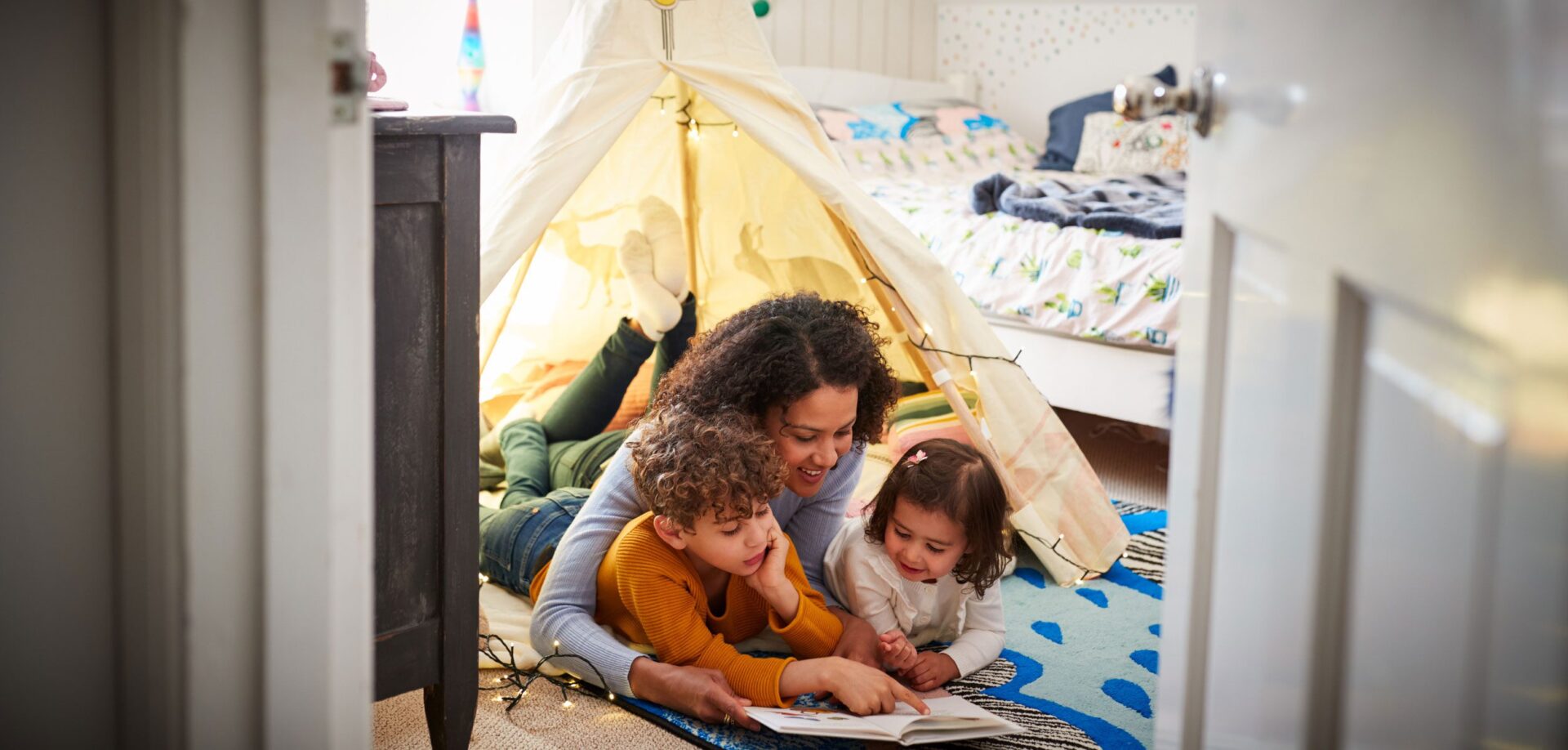Even though COVID-19 is milder among children than adults, this is still a high-stress time for parents. COVID-19 in children has been on the rise, with children recently making up 24% of all reported U.S. COVID-19 cases. A new Morbidity and Mortality Weekly Report (MMWR) Series prepared by the Centers for Disease Control and Prevention (CDC) finds that among children hospitalized for COVID-19 during July–August 2021, 2 out of 3 had an underlying medical condition, most commonly obesity, and fewer than 1% of those eligible were fully vaccinated.
To help you get through this time we outlined guidance on keeping your kids safe and healthy. Here’s what you need to know:
Keep Hands Clean
Practicing proper handwashing techniques (for you and your child) is one of the simplest and most helpful ways to reduce transmission of COVID-19. UNICEF guidelines include:
- Wash for 20-30 seconds each time.
- Start by wetting hands under running water. Add soap and scrub all parts of your hands (including between fingers and under your nails) for 20 seconds or more. Finally, rinse thoroughly to remove all soap, and dry your hands with a clean towel or cloth.
- Wash hands before and after eating and cooking. Also, after using the bathroom, blowing your nose, coughing, or sneezing. Furthermore, after returning from a public space or touching any surfaces outside your home; after helping a child use the bathroom; before and after caring for someone who is sick; and any other time it feels right.
- Consider setting up a stool at the sink so kids are able to reach the water and soap.
- Alcohol-based sanitizer is an appropriate substitute for hand washing. Especially if you’re away from home and don’t have access to soap and water.
Teach Your Kids Proper Sneezing and Coughing Etiquette
Make sure your kids cover their mouth and nose with a tissue or their elbow when sneezing or coughing. And always encourage hand washing afterwards.
Enforce Social Distancing
Social distancing is an important way to slow the spread of COVID-19. But it’s not an easy concept for kids to understand. Speak candidly with your kids about the importance of social distancing.
Avoid places that are poorly ventilated.
Get in Touch With a Healthcare Provider if your Child is Symptomatic
Living during the time of a pandemic is scary, especially when you’re worried about the health of your children. But there is one thing to be grateful for—most cases of COVID-19 have been in adults so far and only rarely have children experienced severe cases of COVID-19. But it’s still important to be in touch with your pediatrician if your kids seem sick or develop any common coronavirus symptoms such as a fever, runny nose, cough, diarrhea, difficultly breathing, or vomiting. To avoid any unnecessary time in public where the chances of exposure are higher, always try to call your physician before heading to their office. These days, telehealth is often a suitable replacement for many in-person visits.
Wear Face Coverings When Appropriate
The Centers for Disease Control and Prevention (CDC) encourages all people who are two-years-old or older to wear a face covering that covers your nose and mouth when visiting an indoor public setting. This is important for preventing the spread of the virus to others. Remember that you can be a carrier of COVID-19 even if you don’t have symptoms, so it’s important to wear a face mask even if you and your children don’t feel sick.
The CDC also recommends wearing a mask outdoors in crowded areas or when you are in close contact with others who aren’t fully vaccinated.
Talk to People Who Care for or Spend Time with Your Child About Staying Safe from COVID-19
Check that your child’s school, childcare program, or other caregivers are taking the necessary steps to protect your children. Also, pack extra masks in your child’s backpack and if your child is old enough, they can bring hand sanitizer from home to use when they cannot wash their hands.
Clean and Disinfect Your Home
Clean surfaces in common areas that are frequently touched, such as tables, doorknobs, hard-backed chairs, light switches, remotes, electronics, handles, desks, toilets and sinks.
Keep Up With Your Child’s Well Visits and Vaccines
This is especially important for infants and young children under age 2. Many doctors separate well visits from sick visits by seeing sick children in separate areas of their offices.
Everyone age 5 and older are encouraged to get vaccinated against COVID-19. A COVID-19 vaccine can prevent your child from getting and spreading the virus that causes COVID-19.
What is multisystem inflammatory syndrome in children (MIS-C)?
MIS-C is a serious condition in which some parts of the body — such as the heart, lungs, blood vessels, kidneys, digestive system, brain, skin or eyes — become severely inflamed. Many children with MIS-C were previously infected with the COVID-19 virus, suggesting that MIS-C is caused by an excessive immune response related to COVID-19.
If you would like to meet with a knowledgeable doctor, consider contacting Women’s Health Arizona. As Arizona’s largest ObGyn group, we’re trained and solely dedicated to delivering the best ObGyn experience in convenient and comfortable settings around Phoenix.

